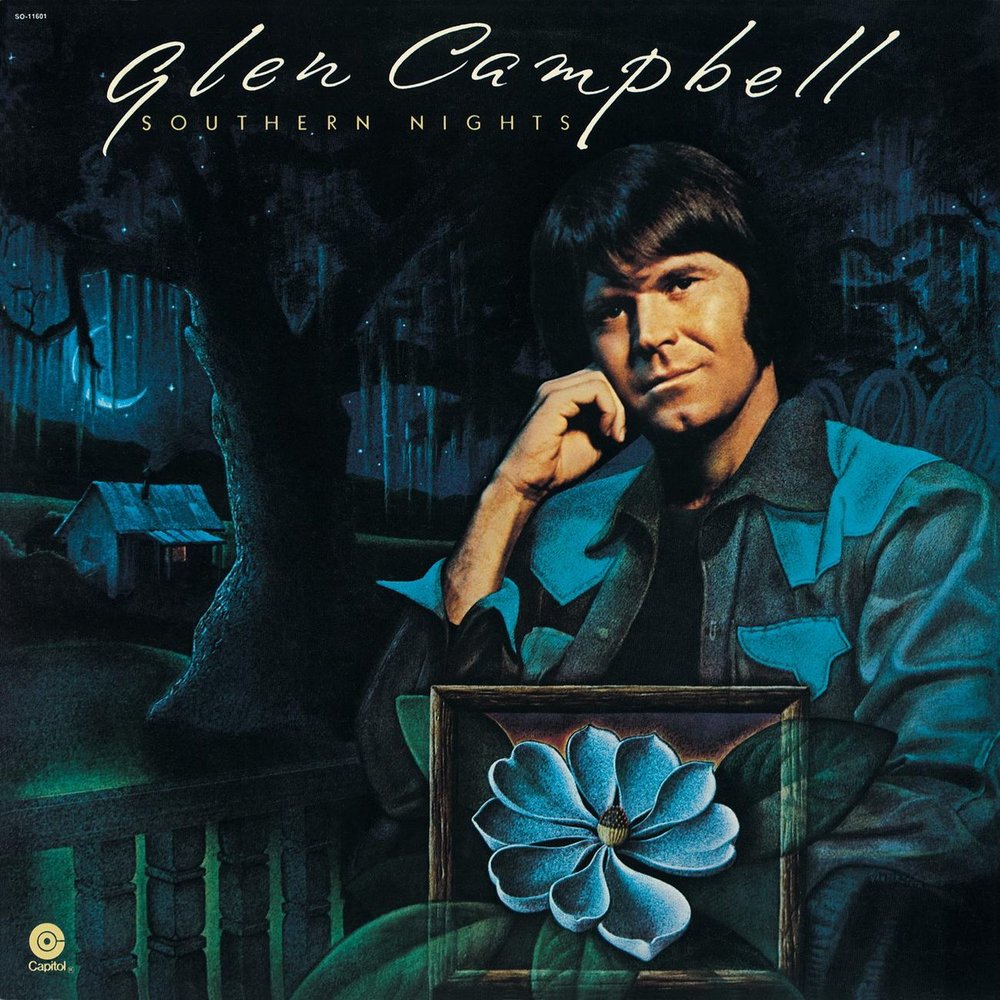
Glen Campbell’s “Southern Nights”: A Journey Through Time and Memory
“Southern Nights,” originally penned and performed by the legendary American musician Allen Toussaint, found new life when country music icon Glen Campbell recorded his version in 1977. This song, which evokes the nostalgic beauty of Southern life, became one of Campbell’s most celebrated hits, resonating deeply with audiences across the United States. The track was the first single released from Campbell’s 1977 album, also titled Southern Nights, and its impact was undeniable, reaching No. 1 on three separate US charts: the Billboard Hot 100, the Hot Country Singles chart, and the Hot Adult Contemporary chart.
The origins of “Southern Nights” are rooted in Allen Toussaint’s childhood memories of the Louisiana backwoods, where starry nights and family storytelling shaped his early life experiences. Toussaint’s version of the song, with its wistful lyrics and gentle melody, painted a vivid picture of those serene, almost magical evenings spent under the Southern sky. When Glen Campbell first heard Toussaint’s rendition, he was immediately struck by its familiarity. The song’s lyrics, filled with imagery of the rural South, reminded Campbell of his own upbringing on an Arkansas farm, where similar nights were spent surrounded by family and nature.
Campbell, inspired by Toussaint’s storytelling, decided to record his version of “Southern Nights,” adding his unique touch to the song. In October 1976, he entered the studio and laid down a track that would become one of the defining hits of his career. While he remained true to the spirit of Toussaint’s original, Campbell slightly modified the lyrics to better reflect his personal connection to the song. The result was a track that seamlessly blended country, pop, and folk influences, a perfect reflection of Campbell’s versatility as an artist.
What truly set Glen Campbell’s version apart was its distinctive guitar riff, a playful and breezy lick that Campbell had picked up from his friend, fellow country musician Jerry Reed. This riff became the song’s signature, adding a lively, almost carefree feel that perfectly complemented the nostalgic lyrics. The combination of Campbell’s smooth vocals, the infectious guitar riff, and the song’s evocative lyrics struck a chord with listeners from various musical backgrounds.
Released in January 1977, “Southern Nights” quickly climbed the charts, proving to be a crossover sensation. It captured the hearts of both country and pop audiences, spending two weeks at No. 1 on the Billboard Hot Country Singles chart in late March 1977. This achievement marked Campbell’s fifth and final No. 1 country hit, a testament to his enduring appeal in the country music genre. But the song’s success didn’t stop there; in late April 1977, “Southern Nights” also reached the pinnacle of the Billboard Hot 100 pop chart, making it Campbell’s second and last No. 1 pop hit.
In addition to its country and pop success, “Southern Nights” dominated the Hot Adult Contemporary chart, where it spent four weeks at No. 1, solidifying its place as one of Campbell’s most significant hits on that chart. The song’s ability to transcend genres and appeal to such a broad audience is a reflection of its timeless quality and the universal appeal of its themes of memory, family, and the simple pleasures of life.
Glen Campbell’s rendition of “Southern Nights” is more than just a song; it’s a journey through time, a musical ode to the Southern way of life, and a testament to the power of music to connect us to our roots. For Campbell, the song was a deeply personal reflection of his own childhood, and for listeners, it became an anthem of nostalgia, reminding them of their own Southern nights and the memories that shaped their lives.